The National Recitation Competition Poetry Out Loud Does More Than Teach Students How to Memorize Poems. It Opens Them Up to New Ways of Perceiving the World Around Them.

A MOS Koffa was a skinny, bespectacled, middle-school outcast with few friends when the student first wrote a poem. Amos knew of Maya Angelou (after hearing her poem “In and Out of Time” in the 2006 comedy Madea’s Family Reunion, Amos walked around the house murmuring the title like an incantation) but had never written anything that wasn’t part of a school assignment.
Then Amos, who uses the pronouns “they/them/ their,” saw a flyer in the library of Science Park High School in Newark, New Jersey: a call for submissions for Talented: 2012 Poetry Collection, published by the America Library of Poetry. “I wrote a poem about being sad,” Amos says. “The title was ‘Sorrow.’ It got put in the book, and I was really happy. I felt like I did something, like my voice mattered.” Amos was fourteen years old.
That year, Amos and other eighth graders watched the school-wide competition for Poetry Out Loud, a national recitation contest created by the National Endowment for the Arts (NEA) and the Poetry Foundation and administered in partnership with state arts agencies. Amos was a Glee devotee who aspired to be an actor, but this was something new: These were teenagers performing poems by William Shakespeare, Yusef Komunyakaa, and Naomi Shihab Nye. Using their bodies and voices to articulate confusion, passion, and loneliness. Earning applause.
Poetry Out Loud is for high school students only, but the eighth graders did a mock contest in the classroom; teachers and students raved about Amos’s performance. When the yearbook came out, Amos, the gangly teen with a habit of ducking their head at the end of every sentence, was stunned to see their photo with the caption “Most Poetic.”
This story is from the March - April 2018 edition of Poets & Writers Magazine.
Start your 7-day Magzter GOLD free trial to access thousands of curated premium stories, and 9,000+ magazines and newspapers.
Already a subscriber ? Sign In
This story is from the March - April 2018 edition of Poets & Writers Magazine.
Start your 7-day Magzter GOLD free trial to access thousands of curated premium stories, and 9,000+ magazines and newspapers.
Already a subscriber? Sign In

Literary MagNet
When Greg Marshall began writing the essays that would become his memoir, Leg: The Story of a Limb and the Boy Who Grew From It (Abrams Press, June 2023), he wanted to explore growing up in Utah and what he calls \"the oddball occurrences in my oddball family.\" He says, \"I wanted to call the book Long-Term Side Effects of Accutane and pitch it as Six Feet Under meets The Wonder Years.\" But in 2014 he discovered his diagnosis of cerebral palsy, information his family had withheld from him for nearly thirty years, telling him he had \"tight tendons\" in his leg. This revelation shifted the focus of the project, which became an \"investigation into selfhood, uncovering the untold story of my body,\" says Marshall. Irreverent and playful, Leg reckons with disability, illness, queerness, and the process of understanding our families and ourselves.
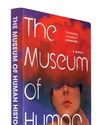
THE MEUSEUM OF HUMAN HISTORY
READING The Museum of Human History felt like listening to a great harmonic hum. After I finished it I found the hum lingering in my ears. Its echo continued for days.
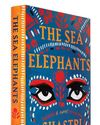
The Sea Elephants
SHASTRI Akella's poised, elegant debut, The Sea Elephants, is a bildungsroman of a young man who joins a street theater group in India after fleeing his father's violent disapproval, the death of his twin sisters, and his mother's unfathomable grief.
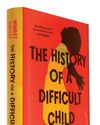
The History of a Difficult Child
MIHRET Sibhat's debut novel begins with God dumping rain on a small Ethiopian town as though. He were mad at somebody.
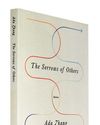
The Sorrows of Others
AS I read each story in Ada Zhang’s brilliant collection, The Sorrows of Others, within the first few paragraphs— sometimes the first few sentences— I felt I understood the characters intimately and profoundly, such that every choice they made, no matter how radical, ill-advised, or baffling to those around them, seemed inevitable and true to me.
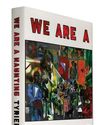
We Are a Haunting
TYRIEK White’s debut novel, We Are a Haunting, strikes me as both a love letter to New York City and a kind of elegy.

RADICAL ATTENTION
IN HER LATEST BOOK, THE LIGHT ROOM: ON ART AND CARE, PUBLISHED BY RIVERHEAD BOOKS IN JULY, KATE ZAMBRENO CELEBRATES THE ETHICAL WORK OF CAREGIVING, THE SMALL JOYS OF ORDINARY LIFE, AND AN ENGAGEMENT WITH THE NATURAL WORLD WITHIN HUMAN SPACES.

The Fine Print
HOW TO READ YOUR BOOK CONTRACT

First
GINA CHUNG'S SEA CHANGE
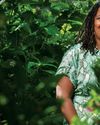
Blooming how she must
WITH ROOTS IN NATURE WRITING, ENVIRONMENTAL JUSTICE, POETRY, AND PHOTOGRAPHY, CAMILLE T. DUNGY'S NEW BOOK, SOIL: THE STORY OF A BLACK MOTHER'S GARDEN, DELVES INTO THE PERSONAL AND POLITICAL ACT OF CULTIVATING AND DIVERSIFYING A GARDEN OF HERBS, VEGETABLES, FLOWERS, AND OTHER PLANTS IN THE PREDOMINANTLY WHITE COMMUNITY OF FORT COLLINS, COLORADO.